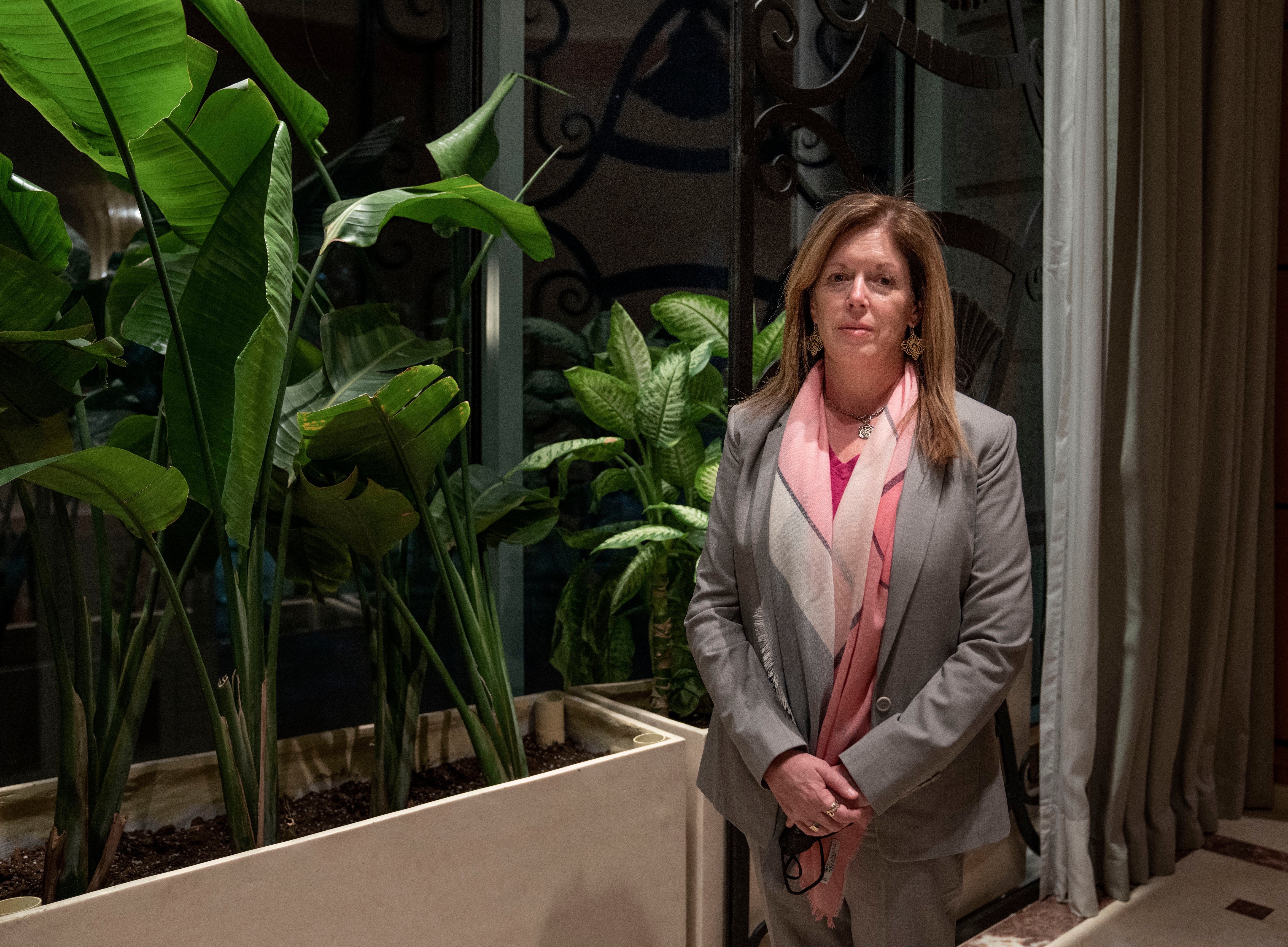UN official: Libya elections could be rescheduled for June
A senior U.N. official says Libya could hold elections by June after the county missed a December deadline to elect its first president since the 2011 ouster and killing of dictator Moammar Gadhafi

Your support helps us to tell the story
From reproductive rights to climate change to Big Tech, The Independent is on the ground when the story is developing. Whether it's investigating the financials of Elon Musk's pro-Trump PAC or producing our latest documentary, 'The A Word', which shines a light on the American women fighting for reproductive rights, we know how important it is to parse out the facts from the messaging.
At such a critical moment in US history, we need reporters on the ground. Your donation allows us to keep sending journalists to speak to both sides of the story.
The Independent is trusted by Americans across the entire political spectrum. And unlike many other quality news outlets, we choose not to lock Americans out of our reporting and analysis with paywalls. We believe quality journalism should be available to everyone, paid for by those who can afford it.
Your support makes all the difference.A senior U.N. official said she is pushing for Libya to hold elections by June after the county missed a December deadline to elect its first president since the 2011 ouster and killing of longtime dictator Moammar Gadhafi.
Stephanie Williams, the U.N.'s special adviser on Libya, told The Associated Press late Sunday that it is still “very reasonable and possible” for the country’s 2.8 million voters to cast their ballots by June in line with the U.N.-brokered 2020 roadmap.
Libya failed to hold its first-ever presidential elections on Dec. 24 as scheduled, a major blow to international efforts to end a decade-long chaos in the rich-oil Mediterranean nation.
Williams, who led U.N. efforts to end the latest bout of violence in Libya in 2020, said elections are needed in the country to give credence to the country's institutions.
“All the institutions are suffering a crisis of legitimacy,” she said. “I don’t see any other exit for Libya other than a peaceful political process.”
The country plunged into turmoil after the NATO-backed 2011 uprising and split into rival governments — one in the east, backed by military commander Khalifa Hifter, and another U.N.-supported administration in the capital of Tripoli in the west. Each side is supported by a variety of militias and foreign powers.
In April 2019, Hifter and his forces, backed by Egypt and the United Arab Emirates, launched an offensive to try and capture Tripoli. His campaign collapsed after Turkey and Qatar stepped up their military support of the Tripoli government with hundreds of Turkish troops and thousands of Syrian mercenaries.
Mediated by the U.N., an October 2020 cease-fire led to the formation of a transitional government and scheduled elections for Dec. 24. But the vote faced steep challenges that eventually forced its postponement.
Williams urged lawmakers, who are convening Monday in the eastern city of Tobruk, to agree on a “clear, time-bound process with a clear horizon and to not create an open-ended process.”
“They have to shoulder a great responsibility right now to respect the will of the Libyans who registered to vote,” she said. “Libyans want an end to this long period of transition that the country has experienced since the events of 2011."
The challenges facing the elections include bitter disputes over the laws governing the electoral process and occasional infighting among armed groups. The presence of thousands of foreign fighters and troops in the North African country continues to feed mistrust between the rival groups in the East and West.
Williams, however, did not see the departure of foreign mercenaries as a “prerequisite for the elections,” saying that holding the cease-fire is the priority.
“There have been mercenaries in Libya since 1970s," she said, adding later, "I don’t believe that that is a card that is necessary to play at this time.”
Controversial figures declaring runs for the presidency have further polarized the political scene in recent months. Among them are Hifter, Prime Minister Abdul Hamid Dbeibah and Seif al-Islam Gadhafi, the ousted dictator’s son and one-time heir apparent.
The vote's delay also threatens to open a power vacuum. Lawmakers have argued that the mandate of Dbeibah’s government ended on Dec. 24. A legislative committee for the election suggested last month restructuring the interim government to “achieve stability.”
The U.N. adviser called on the parliament to focus on delivering the vote rather than appointing a new transitional administration.
“What Libyans have clearly said is that they want to go to the ballot box and choose their government, a democratically government representing the entire Libya,” she said.